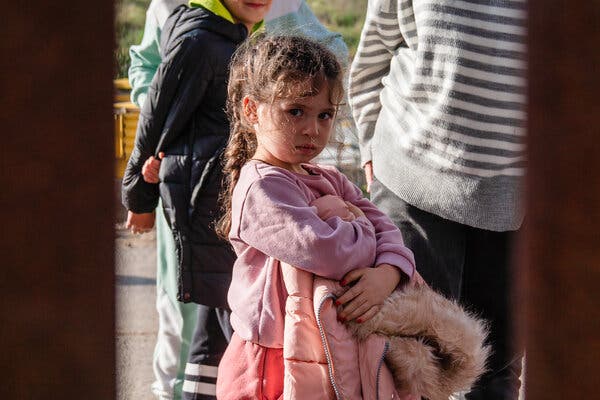A federal judge is expected to rule soon on whether the government must provide shelter, food and medical care to minors while they await processing.

Emily Baumgaertner reported from five migrant camps along the U.S.-Mexico border wall in California.
To Dr. Theresa Cheng, the scene was “apocalyptic.”
She had come to Valley of the Moon, an open-air holding site in San Diego’s rural Mountain Empire, to provide volunteer medical care to asylum seekers who had breached the United States-Mexico border wall and were waiting to be apprehended by American authorities.
Among the throngs at this and other sites, she found children with deep lacerations, broken bones, fevers, diarrhea, vomiting, even seizures. Some were hiding in dumpsters and overflowing porta-potties. An asthmatic boy without an inhaler was wheezing in the acrid smoke from brush and trash fires, which had been lit for warmth.
With the capacity at immigration processing centers strained, migrants, including unaccompanied children, are waiting for hours — sometimes days — in outdoor holding areas, where a lack of shelter, food, and sanitation infrastructure has triggered an array of public health concerns for the most vulnerable.
“From a public health standpoint, there are communicable diseases and outdoor exposures that would strike anyone down, much less this medically vulnerable population,” said Dr. Cheng, an emergency room physician at Zuckerberg San Francisco General Hospital and Trauma Center.
A Federal District Court judge in California could rule as early as Friday on whether the government is legally required to shelter and feed the children as they wait.
In a court filing, lawyers for the Department of Justice argue that because the children have not yet been formally taken into custody by U.S. Customs and Border Protection, they are not obligated to provide such service.

